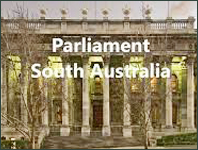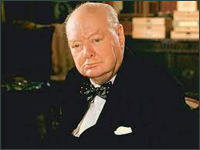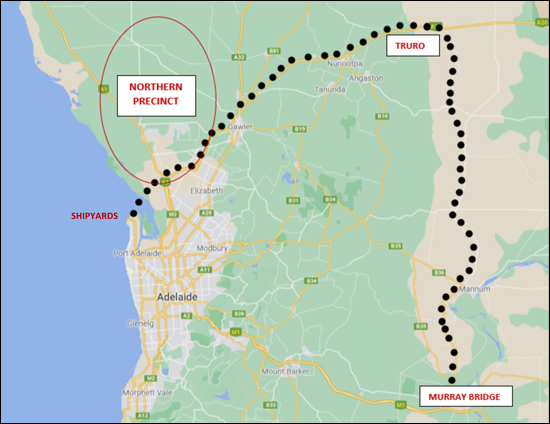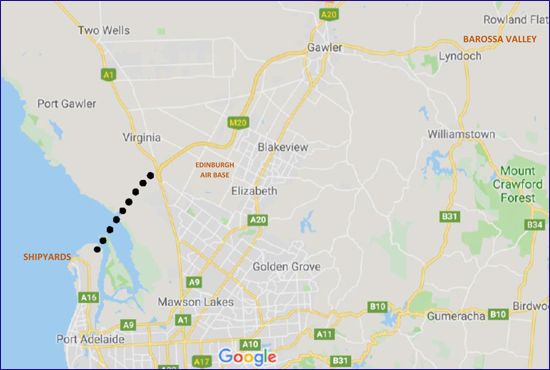 A recent 4-Corners program titled ‘Going, Going, Gone …’ asked the question, “What is driving Australia’s property frenzy?”
A recent 4-Corners program titled ‘Going, Going, Gone …’ asked the question, “What is driving Australia’s property frenzy?”
“Across Australia”, they reported, “property prices were going through the roof, pushing the total value of residential real estate to a staggering nine trillion dollars.
“When the pandemic hit in 2020, there were fears the property market would collapse. Instead, house prices have risen at the fastest pace in at least three decades.
“For many people, the housing market has become unaffordable and it’s creating a generational divide. Home ownership among those under the age of 45 has plunged to levels not seen since the 1950s.
“There’s a sense of despair and disillusionment from many who have worked and saved, only to see their dream slip out of sight.
“For my generation it means a lot less home ownership. I feel it’s very unfair,” said one home hunter.
“I did everything right. I did everything that every politician has ever told us to do. The situation’s left me feeling completely defeated,” said another.
“As the divide between the haves and have-nots grows, housing experts warn there will be consequences.”
First, let’s get one thing straight, Australia does not have a ‘housing’ affordability problem, it has a ‘land’ affordability problem. As most people know, over the past 20 years the cost of building a new house in Australia has hardly moved. Land prices however have skyrocketed. By restricting the amount of land available on the urban fringe, state governments have sent the price of entry-level housing through the roof. State governments have used urban planning laws to restrict the amount of fringe land available and then drip fed it through their land management agencies to a land-starved housing industry at inflated prices. A few years ago, I asked a former cabinet minister why the government didn’t release more land to keep up with demand for housing. The former cabinet minister replied, “We needed the money”.
Throughout history, there have been times when surges in demand for goods and services appear out of nowhere but then equally out of nowhere, increases in supply meet that demand to keep the supply/demand equation in balance. A good example of this was the massive increase in demand for digital TVs, laptops, tablets and smart phones. And yet despite this surge in demand, prices fell. Why? Because supply was able to match – even exceed – demand. With housing, they wouldn’t allow the supply (of land) to meet the demand.
First home ownership is about getting a start in the housing market and in a modern, growing economy, that can really only happen on the urban fringe. The rising price of inner suburban houses is caused by growing demand from a growing population and a growing economy for a finite supply of goods – that is, lots of people all wanting to buy the same houses. There is little governments can, or should, do about the price of goods that are forever increasing in demand. But there’s a lot they can and should do about fringe development – entry level housing – where there’s an infinite supply of land available and a housing industry ready, willing and able to put good quality houses on it at very low prices.
A point made by one of the 4-Corners commentators was the amount of new housing supply required ‘to bring down house prices’.
This should not be the objective.
Increased supply does not need to bring down the average house price, only the entry level house price.
We shouldn’t care if house prices in inner suburbs cost over $1m as long as the entry level is around $250,000. Which it could be.
It’s the same with the job market. What does it matter if highly skilled people earn $1m a year, as long as the entry level is low enough for people to get a foot on the employment ladder?
Once on the housing or employment ladder, the only way is up.
For more on the Australian Family Party’s housing policy, click here.
 In his brilliant new book, ‘The Magna Carta of Humanity’, Os Guinness writes, “The great paradox of freedom is that the greatest enemy of freedom is freedom itself. Freedom cannot keep itself alive. It requires responsibility, which can be burdensome. People become complacent, self-satisfied, self-congratulatory. It is the beginning of the end.”
In his brilliant new book, ‘The Magna Carta of Humanity’, Os Guinness writes, “The great paradox of freedom is that the greatest enemy of freedom is freedom itself. Freedom cannot keep itself alive. It requires responsibility, which can be burdensome. People become complacent, self-satisfied, self-congratulatory. It is the beginning of the end.” A man visited a doctor saying he was deeply depressed. Confiding in the doctor, the man said he felt all alone in a threatening world and that life was just too hard. What’s more, he said he was very uncertain about what lay ahead for himself and his family.
A man visited a doctor saying he was deeply depressed. Confiding in the doctor, the man said he felt all alone in a threatening world and that life was just too hard. What’s more, he said he was very uncertain about what lay ahead for himself and his family. It wasn’t without its challenges, but on Friday we received notification of the Party’s official registration in South Australia. Thank you to all those who helped with this endeavour.
It wasn’t without its challenges, but on Friday we received notification of the Party’s official registration in South Australia. Thank you to all those who helped with this endeavour. The story is told of Joseph of Arimathea, the wealthy businessman who donated his own tomb for Jesus’ burial. When news of his generous gesture spread amongst Joseph’s business colleagues, a number of them went to see him. “Joseph, are you sure you know what you’re doing, giving your tomb to this Jesus of Nazareth? Tombs are very valuable and yours is the best in the cemetery,” they implored.
The story is told of Joseph of Arimathea, the wealthy businessman who donated his own tomb for Jesus’ burial. When news of his generous gesture spread amongst Joseph’s business colleagues, a number of them went to see him. “Joseph, are you sure you know what you’re doing, giving your tomb to this Jesus of Nazareth? Tombs are very valuable and yours is the best in the cemetery,” they implored. For instruction on how to regulate society it’s hard to go past the 10 Commandments. By comparison, according to Thomson Reuters’ Legal Encyclopedia, Australian governments have enacted over 40,000 Commandments. So when God distils everything down to 10, and then applies 2 of them to the protection of people’s property – do not steal (Commandment No 7) and do not covet your neighbour’s goods (Commandment No 10) – it’s reasonable to assume it is an important subject.
For instruction on how to regulate society it’s hard to go past the 10 Commandments. By comparison, according to Thomson Reuters’ Legal Encyclopedia, Australian governments have enacted over 40,000 Commandments. So when God distils everything down to 10, and then applies 2 of them to the protection of people’s property – do not steal (Commandment No 7) and do not covet your neighbour’s goods (Commandment No 10) – it’s reasonable to assume it is an important subject. In the 1920s Al Capone virtually owned Chicago. He was notorious for corrupting the windy city with everything from bootlegging (illegal liquor) to prostitution to murder.
In the 1920s Al Capone virtually owned Chicago. He was notorious for corrupting the windy city with everything from bootlegging (illegal liquor) to prostitution to murder. World War II produced many heroes. One such man was Lieutenant Commander Butch O’Hare, a fighter pilot assigned to the aircraft carrier Lexington in the South Pacific.
World War II produced many heroes. One such man was Lieutenant Commander Butch O’Hare, a fighter pilot assigned to the aircraft carrier Lexington in the South Pacific. In studying family policy around the world, Poland caught my attention recently as being right up there with the very best of them in terms of fundamental objectives.
In studying family policy around the world, Poland caught my attention recently as being right up there with the very best of them in terms of fundamental objectives. Last week in
Last week in 
